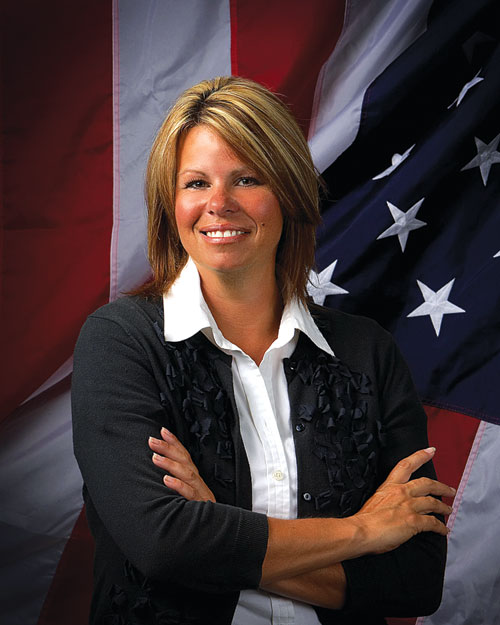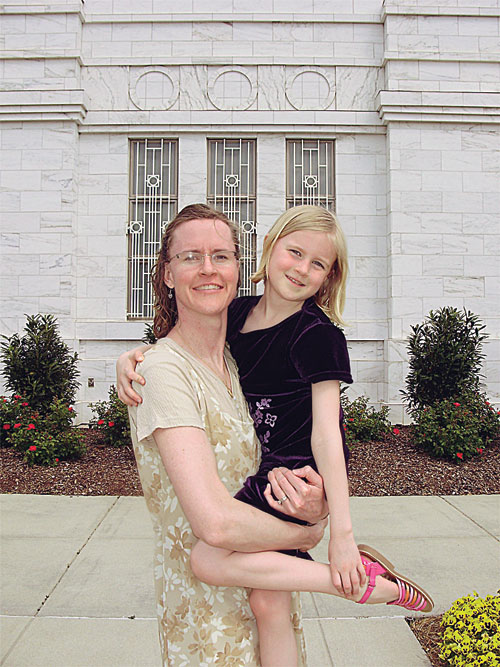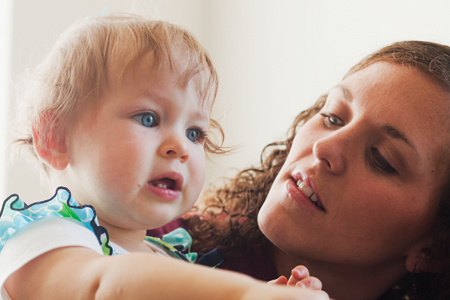How alumni use their BYU education to serve their communities, neighbors, and families.

Debbie Critchfield drew on her BYU exit poll experience to conduct a high school exit poll 20 yeas later.
Taking Students to the Polls
Recently my BYU experience with the Utah Colleges Exit Poll benefitted seniors at five local high schools. As the chairman of our school board, I proposed that our school district conduct its own exit poll for the 2008 general election. I was able to organize this event drawing on the knowledge I gained at BYU, gathering exit poll information as a freshman in 1988 and compiling and analyzing data as a senior in 1992.
The end result was well worth the effort. The story became a big part of election-night coverage on the local TV station, showing students at every level of the project. Local papers did articles discussing the poll. Republican Party leaders asked for a group of students to make a presentation about poll results at their election-night gathering.
The most rewarding aspect of the project was the effect it had on students at the alternative high school. Their teacher shared with me the interest in government her students had gained. Those who were able to register to vote had done so and many had expressed desires to pursue interests in government. For many of these at-risk students, this was a significant development.
This event became a living model of how elections serve the citizens.
—Debbie Durham Critchfield (BA ’93), Oakley, Idaho
Learning Leaves
Back in 1988 I took Zoology 334 from Professor Clyde L. Pritchett (BS ’60). One of our assignments was to make a leaf book that contained actual leaves that we identified. After 22 years my leaf book is still in fairly good condition, and I decided to use it to teach my children: “There’s a birch. Look at that beautiful horse chestnut! Can you find a maple in the park?”
My daughter Jill, age 8, was especially interested and studied my old leaf book carefully. Everywhere we drove, she looked out the window trying to identify trees. I knew she had gained knowledge and a love of nature when she said one day, “Mom, the only good thing about going to the dentist is that I get to see the catalpa tree.”
—Jennifer Belue Parry (BS ’89), Pocatello, Idaho

To help her daughter overcome school trauma, Angela Jowers remembered a sociological theory learned at BYU.
Tip: Change It Up
When my daughter, Maya, experienced emotional turmoil over being bullied at school, I addressed the issue; yet several months passed and getting ready for school each morning still included an ingrained response of crying over being bullied. As I pondered this situation, a sociological theory of systems I had learned at BYU came to mind: If any one part of a system is changed, the whole system will be altered. I decided to give it a try, and I mixed up the order of my daughter’s preparatory routine. It was amazing! Customarily, she began crying after breakfast on her way to get dressed. She was now getting dressed first and did not know where in the routine to begin the tears. We arrived at school without any tears, and she was actually surprised and quite proud of herself. She finished out the school year using the new routine and loving school again.
—Angela Madsen Jowers (BS ’98), West Valley City, Utah









